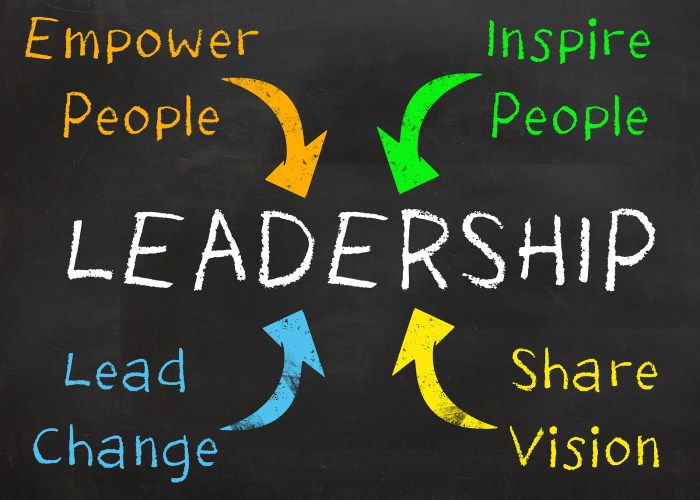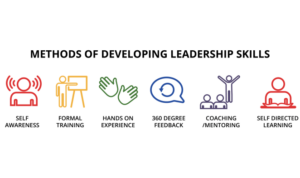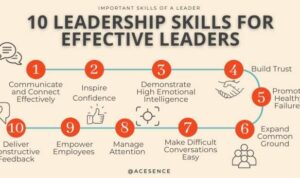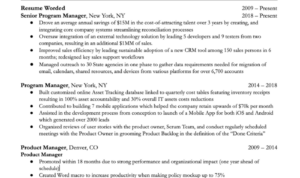Leadership Development sets the stage for individuals to hone their skills and become effective leaders in various organizations. From essential components to challenging obstacles, this journey explores the dynamic world of developing leadership abilities.
Get ready to dive into the realm of Leadership Development and uncover the secrets to unlocking your full leadership potential.
What is Leadership Development?

Leadership development is the process of improving and enhancing the skills, abilities, and qualities of individuals to become effective leaders. It involves various training programs, workshops, mentoring, and coaching sessions to help individuals develop their leadership competencies.
Importance of Leadership Development in Organizations
Leadership development is crucial for organizations as it helps in grooming future leaders, improving decision-making skills, fostering innovation, and creating a positive work culture. It also enhances employee engagement, boosts productivity, and drives organizational success.
- Successful Leadership Development Programs:
- 1. The Harvard Business School’s Advanced Management Program
- 2. General Electric’s Leadership Development Program
- 3. IBM’s Leadership Development Program
How Leadership Development Contributes to Employee Motivation and Retention
Leadership development plays a key role in motivating employees by providing them with opportunities for growth, advancement, and skill development. When employees see that their organization invests in their development, they feel valued and are more likely to stay with the company. Additionally, effective leadership creates a positive work environment that fosters employee satisfaction and retention.
Key Components of Leadership Development
Leadership development involves cultivating a range of essential skills to help individuals become effective leaders in their organizations. These skills are crucial for guiding teams, making strategic decisions, and inspiring others to achieve common goals.
Essential Skills for Leaders
- Effective Communication: Leaders must be able to clearly articulate their vision, provide feedback, and listen actively to their team members.
- Problem-Solving: Leaders should have the ability to analyze complex situations, make decisions under pressure, and find innovative solutions.
- Decision-Making: Leaders need to weigh different options, consider potential outcomes, and choose the best course of action for their team.
- Strategic Thinking: Leaders must be able to set goals, develop plans, and anticipate future trends to guide their organization towards success.
Role of Emotional Intelligence
Emotional intelligence plays a critical role in leadership development as it involves understanding and managing one’s emotions as well as effectively navigating social interactions. Leaders with high emotional intelligence can build strong relationships, inspire trust, and handle conflicts with empathy and resilience.
Significance of Communication Skills
Effective communication skills are essential for leaders to convey their ideas, motivate their team, and foster collaboration. Leaders who can communicate clearly, listen actively, and provide constructive feedback are better equipped to build a positive work environment and drive organizational success.
Strategies for Adaptability and Resilience
- Embrace Change: Encourage leaders to see change as an opportunity for growth and innovation rather than a threat.
- Continuous Learning: Promote a culture of continuous learning and development to help leaders adapt to new challenges and acquire new skills.
- Build a Support Network: Encourage leaders to seek mentorship, coaching, and peer support to enhance their resilience and ability to bounce back from setbacks.
- Promote Self-Care: Remind leaders to prioritize their well-being, manage stress effectively, and maintain a healthy work-life balance to sustain their resilience in demanding situations.
Methods for Leadership Development
Leadership development can take many forms, each with its own benefits and advantages. From coaching and mentoring to specialized training programs, there are various methods organizations can use to cultivate strong leaders.
Coaching and Mentoring, Leadership Development
Coaching and mentoring are essential components of leadership development. These methods involve one-on-one guidance and support from experienced leaders or coaches who provide valuable insights, feedback, and advice to help individuals grow and develop their leadership skills.
- Coaching typically focuses on short-term goals and specific skill development, offering personalized support and guidance to address individual needs.
- Mentoring, on the other hand, involves a longer-term relationship where a more experienced mentor provides guidance, wisdom, and career advice to a less experienced mentee.
Coaching and mentoring relationships can help individuals gain valuable insights, develop self-awareness, and improve their leadership capabilities.
Training Programs
Specialized training programs are another effective method for leadership development. These programs offer structured learning experiences that focus on developing specific leadership skills, such as communication, decision-making, and strategic thinking.
- Training programs can be conducted in-person or online, providing participants with the knowledge, tools, and resources they need to succeed in leadership roles.
- Experiential learning, such as simulations, case studies, and role-playing exercises, can enhance the effectiveness of training programs by providing hands-on experience and practical application of leadership concepts.
Experiential learning allows individuals to apply their knowledge in real-world scenarios, reinforcing learning outcomes and improving retention of key leadership skills.
Impact of Technology
Technology has revolutionized modern leadership development initiatives, offering new opportunities for learning, collaboration, and skill development. Online platforms, virtual reality simulations, and artificial intelligence tools are just a few examples of how technology is shaping the future of leadership development.
- Virtual coaching and mentoring programs enable individuals to connect with experienced leaders from anywhere in the world, expanding access to valuable insights and guidance.
- Online training modules and interactive resources make learning more accessible and flexible, allowing individuals to develop their leadership skills at their own pace and convenience.
Technology has the potential to enhance the scalability, effectiveness, and efficiency of leadership development initiatives, creating new opportunities for growth and development.
Challenges in Leadership Development

Implementing leadership development programs can face various obstacles. Resistance to change, lack of resources, and unclear goals are common challenges organizations encounter. To overcome these hurdles, strategies such as clear communication, stakeholder involvement, and aligning leadership development with organizational objectives are crucial.
Overcoming Resistance to Leadership Development
- Communicate the benefits of leadership development to all stakeholders.
- Involve employees in the planning and implementation process.
- Align leadership development initiatives with the organization’s overall strategy.
- Provide necessary resources and support for participants.
The Role of Diversity and Inclusion in Leadership Development Challenges
- Promote diversity and inclusion within leadership development programs to cultivate a more inclusive leadership culture.
- Offer training on unconscious bias and cultural competence to address diversity challenges.
- Create opportunities for underrepresented groups to participate in leadership development initiatives.
Measuring the Effectiveness of Leadership Development Initiatives
- Utilize key performance indicators (KPIs) to track the impact of leadership development programs.
- Gather feedback from participants and stakeholders to assess the program’s effectiveness.
- Conduct regular evaluations and adjustments to ensure continuous improvement.












